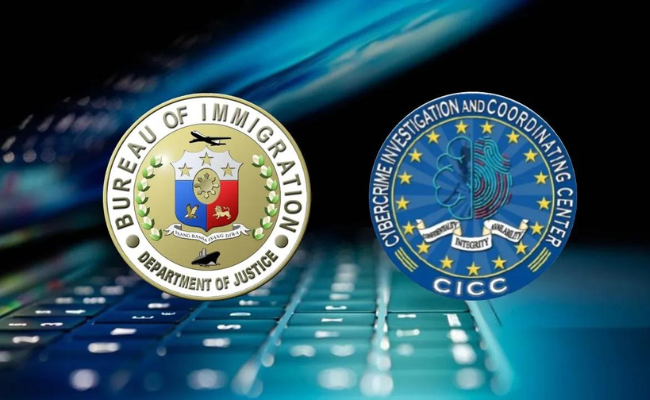/ CICC: Protecting the Philippines from cyber threats
CICC: Protecting the Philippines from cyber threats

The Philippines has rapidly improved its private and public sectors with the latest technologies. However, digital upgrades present new national security challenges from local and international cyberattacks. For example, hackers may breach online banking accounts, and scammers could steal millions of pesos from unsuspecting citizens.
Cyber threats have evolved as gadgets and apps become more sophisticated. Currently, schemers have more targets as Filipinos rely on mobile wallets like GCash. Moreover, fake websites and messages are harder to distinguish than legitimate ones. Worse, the government launched electronic systems that hackers could target.
Fortunately, the country created an ad-hoc agency, the Cybercrime Investigation and Coordinating Center, to improve nationwide cybersecurity. I spoke with CICC Undersecretary Alexander K. Ramos to help Filipinos learn more about its essential role.
What is the CICC?

We started our conversation by discussing how the agency started. USec. Ramos explained the Philippine government mandated its creation in 2012 under a new law.
Republic Act No. 10175 required forming the Cybercrime Investigation and Coordinating Center. However, the ad-hoc agency was not fully operational until 2021 due to past “political infighting.”
President Bongbong Marcos appointed Alexander K. Ramos as the CICC Undersecretary on August 31, 2022. However, the country has faced numerous scams and scandals, urging the CICC to “iron out” its issues.
The cybersecurity head checked the agency for potential “gaps.” The first was the lack of a physical location because “dapat nag-uusap, nagcocollaborate. Nandun yun sa law.” (The CICC must converse and collaborate, according to the law.)
He explained it is a “non-existing concept,” and I added “because it coordinates the DND, DICT, and DILG. In response, USec added, “and it can call on other government agencies.”
Ramos explained it needs a physical office to encourage more government bodies to coordinate with the CICC. “How can you coordinate when you don’t have a physical facility for that?”
“What we want is an active participation of all government agencies to address the growing threat of cybercrimes. By having this facility, we invite more participants. We invite more government agencies. “Our target is to modernize our response to cybercrimes to enlighten everybody.”
How did the CICC evolve?
The Undersecretary elaborated on the country’s cybersecurity “gaps”: knowledge, skill, tools, and policies. Consequently, he recruited experts from various technology fields, such as retired generals, judges, and cybersecurity professionals.
Ramos also shifted the agency’s priorities by ensuring its members are ready to help citizens 24/7. “Before when I came in pagdating ko ng opisina after five ako na lang at saka mga security and nandyan. Wala nang ibang tao”
“So paradigm shift tayo. We are an enforcement and solutions agency. Di yang, the people, pagdatinig ng five nag-uunahang umuwi,” Ramos said.
(Before, when I came into the office after five, the security staff and I were the only ones left. Nobody else was around. That is why we had a paradigm shift. We are an enforcement and solutions agency, so our members should not leave at five o’clock immediately.”
Then, he cited examples of when the CICC assisted government agencies. For instance, the Undersecretary explained how his agency assisted with nationwide SIM card registration.
He reiterated that the CICC’s facilities are more than mere call centers. They focus on 24/7 rapid response by the Cybercrime Investigation and Coordinating Center, the National Telecommunications Commission, and the National Privacy Commission.
Various government agencies realized the capabilities of the CICC and expanded it. Later, the Bureau of Immigration became the first to work with the cybersecurity agency.
They helped OFWs avoid overseas employment scams. That presented an opportunity for the CICC to expand its cybersecurity capabilities. On January 1, 2023, the agency helped improve the NAIA Airport’s online security after its operations malfunctioned.
Eventually, the CICC resolved other serious cyber threats. For example, they helped track down the four foreigners who tortured and killed businessman Mario Uy. Also, it tracked down three Sikh extremists in Iloilo.
What are the growing cybersecurity threats in the Philippines?
I cited a report from the United Nations Office on Drugs and Crime, which warns about the country’s significant rise in cyber threats. It said cybercrimes increased by 433% from 2017 to 2021.
Also, it said the number of online sexual abuse of children skyrocketed to 3.3 million in 2022. Undersecretary Ramos explained it was because Filipinos are more willing to report incidents.
He said the country now has a Women and Children’s Desk and an Online Complaint and Assistance Center. These facilities allow citizens to share concerns behind emails and chat messages.
Back then, people hesitated because they must head to a physical location and spend several hours filing complaints. Also, some felt intimidated talking to investigators.
Others tend to “resign to fate” when they get scammed. Filipinos may shrug off incidents and say, “Bahala na ang Diyos” (May God decide fate),
These improvements enable the CICC and other authorities to address cybercrimes. More reports let them respond and prevent others from becoming victims.
However, the agency is tackling the largest online safety problem: account hijacking. It involves people accessing others’ accounts without permission.
Breaching accounts enable online criminals to perform more heinous activities. In response, the CICC launched public information campaigns to help citizens protect themselves.
For example, the CICC website and social media share tips on how to secure online accounts. Also, it launched Scam Watch Pilipinas to encourage citizens to report online fraud.
The cybersecurity agency knows the growing threat of blockchain and artificial intelligence. Mr. Ramos said it has a team that addresses crypto crimes. It also monitors generative AI and how people use it to facilitate online crime.
Conclusion
President Marcos has been helping our country adapt to global technological changes. Fortunately, the CICC has been helping the government mitigate online risks.
It has been improving digital government systems by letting more citizens interact with them. Also, the agency has been informing people about how internet safety.
If you suspect you’re a victim of an online scam, call the scam response hotline at 1326. Moreover, you can contact the CICC via Facebook and Twitter.
Frequently asked questions about the CICC
What are the CICC’s latest projects?
The cybersecurity agency launched numerous public campaigns to help the Philippines respond to growing online threats. On March 3, 2023, it launched the Anti-Cybercrime Campaign and Upskilling Initiative for Community or Project Acuity across the country. Also, it created proprietary platforms like the CICC Profiling Management System.
How can people report cybercrimes?
You may report suspected cybercrimes through the CICC main hotline at 1326. Also, you may reach the Inter-Agency Response Center (I-ARC) at 0966 9765971 (Globe), 09477147105 (Smart), and 09914814225 (DITO). You may send concerns to the CICC Facebook page, powered by its new CYRI chatbot.







